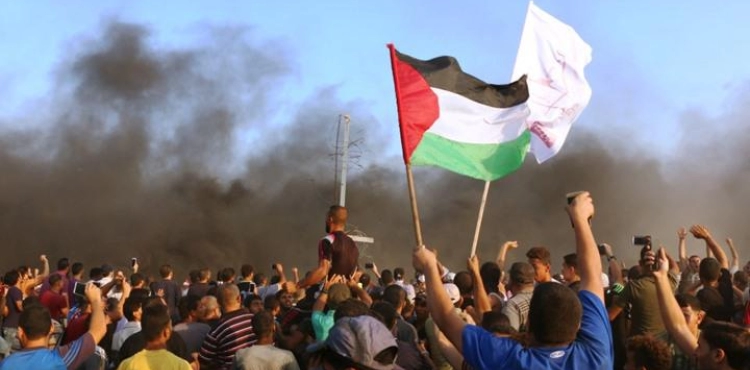The United Nations Relief and Works Agency (UNRWA) on Friday issued a report on the "devastating effects" of the Gaza border crossings a year ago.
According to the report, the masses of the population of the sector, especially the young people were killed and wounded others, and they need long-term medical and psychological assistance.
According to OCHA figures, as of 15 March 2019, a total of 192 Palestinians (including 40 children) had been killed and more than 28,000 injured.
In this context, the United Nations expressed its concern about the excessive use of force by Israeli forces in violation of the norms applicable under international law.
According to testimonials collected, the report noted the "devastating impact" of weekly demonstrations on the lives, livelihoods and health of Palestine refugees and their impact on Agency services as well.
The report expressed UNRWA´s concern and deep concern over the deaths of 13 of its students and the wounding of 227, most of them between the ages of 13 and 15, and the possibility of the students being unable to continue their studies, especially those who are forced to remain away from school for long periods of time.
"Since the start of the major peaceful demonstrations a year ago, not only about 200 people have been killed, but thousands of others have suffered injuries that will always be with them," said Gaza Operations Director Matthias Shamali.
"The tragic and unnecessary loss of life, the insufficiency of the injured to work or return to school, coupled with the long-term psychological consequences of this violence, will affect them for many years to come, adding to their despair."
"The ongoing violence and its tragic effects have put pressure on the components of the health and social system in Gaza, including services provided by UNRWA," the report says.
He pointed out that the harm to children in particular was high, especially with the presence of 20% (533 people) who were treated for injuries associated with the large return march in UNRWA health clinics under the age of 18, mostly boys (95% ).
In addition to the physical impact, the "violence" associated with the Great Return Process has had a major impact on the psychosocial well-being and mental health of the Palestine refugees in Gaza, specifically those who have experienced violence and the families that have suffered as a result.
The report notes that UNRWA´s 22 health facilities in Gaza have been providing assistance to those individuals and families affected by the weekly demonstrations, but they have been under pressure to nearly collapse as a result of dealing with an additional 2729 patients.
"We are doing everything we can to accommodate the tremendous pressure on our health facilities and other facilities," says Shamali.
"However, we must remember that, despite the fact that the demonstrations are taking place in the context of an unpreceded humanitarian crisis in the Gaza Strip and more than 12 years of Israeli siege, the larger context is the critical situation of the refugees of Palestine , who need a just and durable solution "He said.












